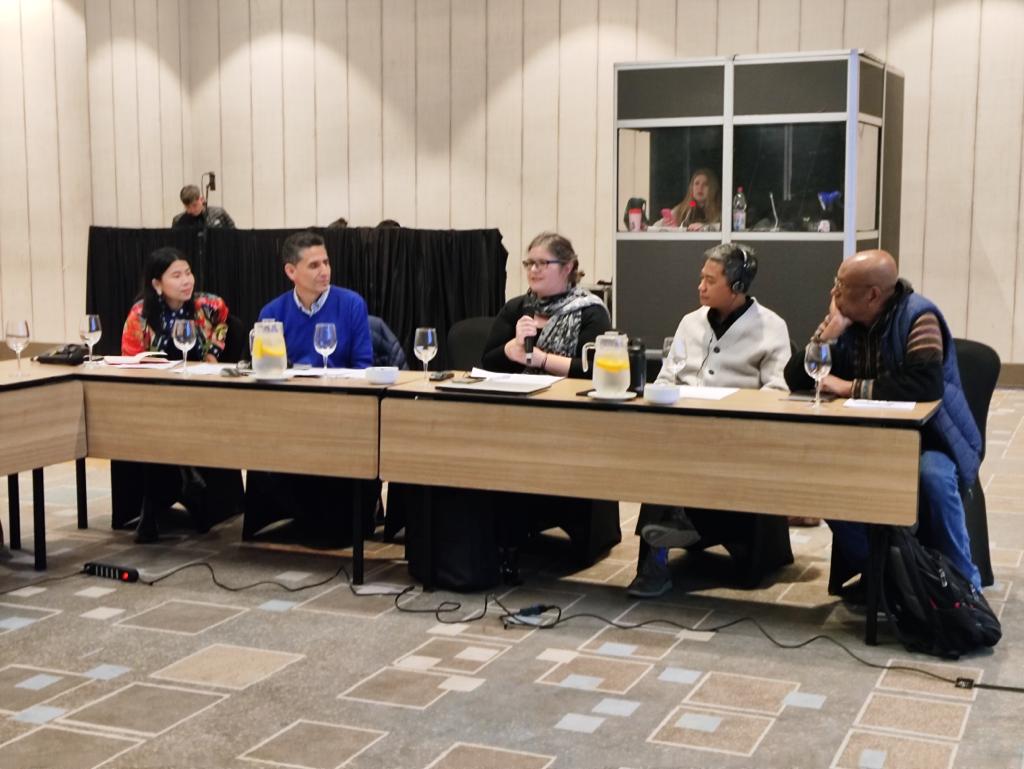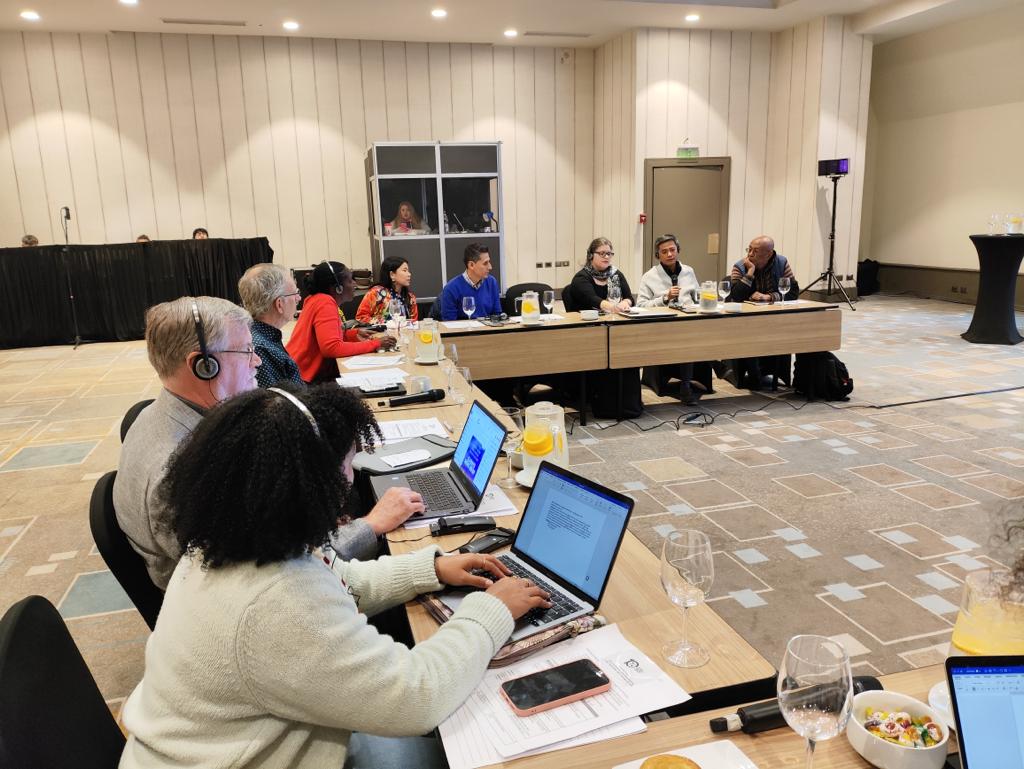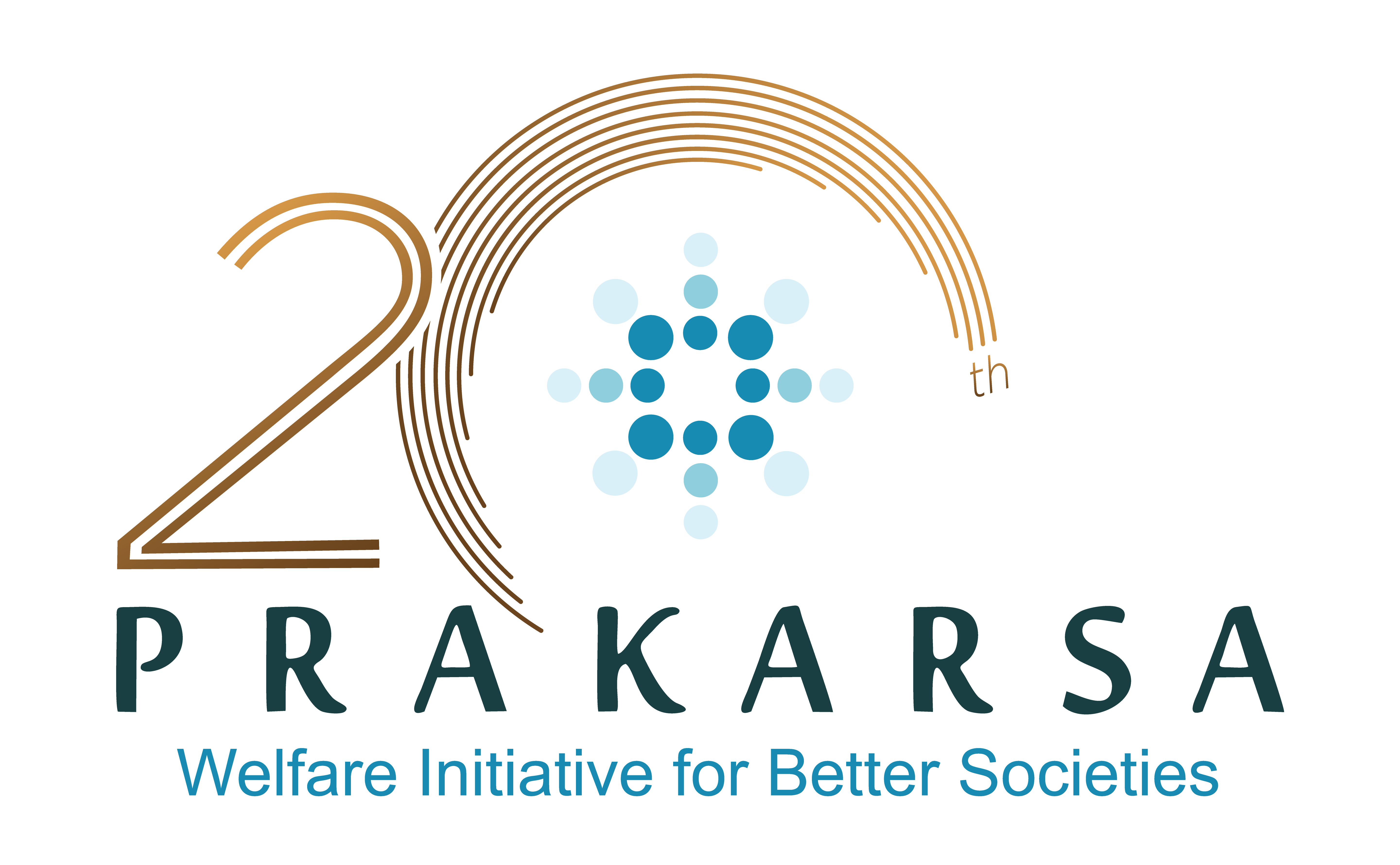
Santiago, Chile, The PRAKARSA – The Coordination Committee members of the Global Alliance for Tax Justice (GATJ) are in Chile for the first face-to-face meeting since the Covid-19 pandemic. The meeting took place in the Plaza Santiago Hotel Santiago Chile from 4-5 September 2023. In addition, the meeting will be continued to commemorate 10 years of the GATJ, 6-8 September 2023. Executive Director of The PRAKARSA, Ah Maftuchan attended as Coordination Committee member of GATJ and Co-coordinator of Tax and Fiscal Justice Asia.
GATJ is a South-led global coalition in the tax justice movement. GATJ works for a world where progressive and redistributive tax policies counteract inequalities within and between countries, and generate the public funding needed to ensure essential services, human rights and tackling poverty.
GATJ created in Lima Peru in 2013, GATJ comprises regional tax justice networks in Asia (Tax & Fiscal Justice Asia), Africa (Tax Justice Network Africa), Latin America (Red de Justicia Fiscal de América Latina y el Caribe), Europe (Tax Justice-Europe) and North America (Canadians for Tax Fairness & FACT Coalition of US), collectively representing hundreds of organisations.
The objectives of meeting are (i) identify achievements, opportunities and challenges for GATJ and its member network in the short and midterm in the current global context and within the tax justice campaigners; (ii) assess degree of relevance of GATJ Strategy Objective in the current and next global context; (iii) developing GATJ positions on emerging tax justice issues; and (iv) outline next steps to improve processes, procedures and ways of working.
Succeed have a lot of parents
In the past ten years, the GATJ has succeeded in contributing to the mainstreaming of tax justice discourse globally. Apart from that, the GATJ and its members have also succeeded in encouraging civil society organizations to pay attention to tax issues as a tool to reduce inequality and a source of financing for development to fulfil human rights and basic services.
At the global policy level, GATJ together with other organizations, have also succeeded in contributing to the preparation of SDGs goals and targets where in SDGs goal number 16.4 that Explicitly states that by 2030 to significantly reduce the flow of illicit funds and weapons, strengthen the recovery and return of stolen assets and counter all forms of organized crime. The measured indicator of 16.4.1 is the total value of illicit funds flowing into and out of the country in USD.
Another big achievement at the global policy change, along with CSOs across the globe such as the Tax Justice Network and world academics, the GATJ contributed to the advocacy of the UN’s resolution on Promotion of inclusive and effective tax cooperation at the United Nations (A/RES/77/244) that adopted during the General Assembly of the United Nations on 30 December 2022. The UN’s tax resolution will open the negotiations among member countries on the UN tax convention and setting up the global tax body under the UN structure. So, developed and developing countries will have an equal position. “This is a historic win for the tax justice and the broader economic justice movement and a big step forward to combat illicit financial flows and tax abuse,” said Dereje Alemayehu, Executive Coordinator of the GATJ.
During the GATJ meeting, we identified opportunities in short and mid-term works. The demand from stakeholders on tax issues highly increased. So, we will continue our work for another big achievement in the next future. Global power contestation between powerhouse countries and some political turbulence in Africa, Latin America and Asia will give us some challenges. But, we have strong membership across the globe that is committed to combating tax abuse across the globe. It makes us still confident to face the next 10 years.
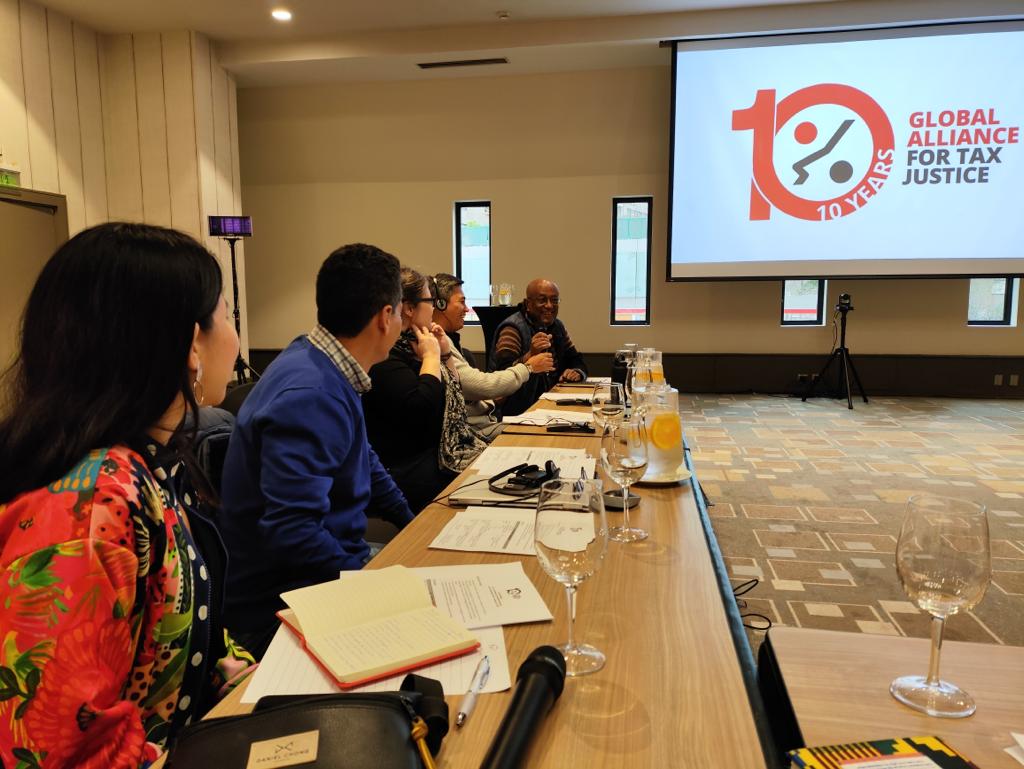

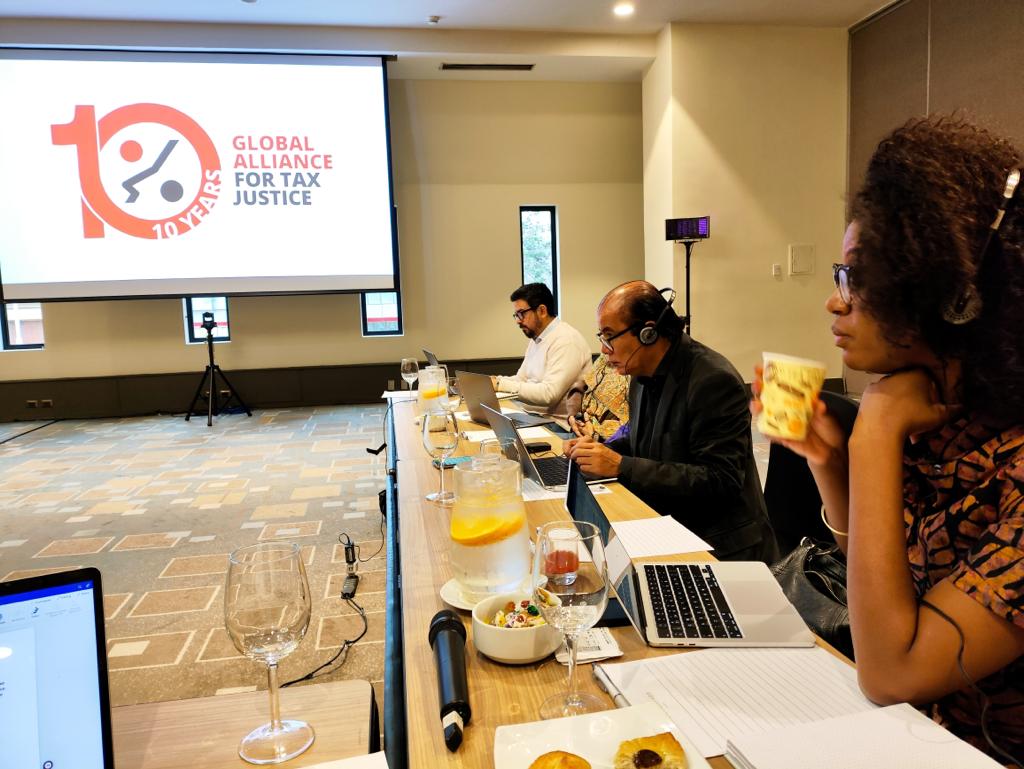
Keep working on
Regarding the emerging issues, we identified some issues that will be important for strengthening tax justice values and contributions for the current crisis, such as inequalities and climate crises. We think that tax and climate justice must become priority as well as wealth-taxes that will be close to the tackling inequalities agenda. GATJ will continue work on following an intergovernmental process for an inclusive and effective international tax cooperation at the UN and we will call for a UN Tax Convention.
Internally, we discuss how to enhance coordination committee leadership, strengthening the secretariat as well as staffing, improving internal and external communications, financial management and fundraising.
The meeting was attended by Dereje Alemayehu Executive Coordinator of the GATJ, Luis Moreno Chair of the GATJ Coordination Committee (CC), Dennis Howlett Treasure of the GATJ CC and member of the GATJ CC: Chenai Mukumba, Jeannie Aida Manipon, Jane Seruwgi Nalunga, Ah Maftuchan, Marusa Babnik, Jorge Coronado and Ian Gary. The GATJ Secretariat attended are Lays Ushirobira, Riska Koopman and Valery Valencia. Adrian Falco, Coordinator of Red de Justicia Fiscal de América Latina y el Caribe (RJFALC) attended as well.
Commemorating 10 years
In addition, the meeting continued with the Latin America regional conference 6-8 September 2023 “A fiscal pact to preserve life: Latin American and the Caribbean face the challenges to finance their development”, as part of the commemorating 10 years of the GATJ and the regional sharing of knowledge and learning campaign experiences. The conference was organise by RJFALC in coordination with LATINDADD, ISP/PSI, ANEICH, AFIICH and ANEF Chile.
During the conference, Ah Maftuchan presented on Illicit Financial Flows: Update from TAFJA’s Works. Maftuchan shares the TAFJA member organizations’ work on combating illicit financial flows (IFFs), such as The PRAKARSA’s work, APMDD’s work and EquityBD’s work. “IFFs being one of the causes of the slow progress of economic development in developing countries because the country loses potential sources of state revenue. The loss of potential state revenue is a sign of the loss of potential citizens’ welfare because the state does not have adequate revenue to finance basic rights-services for citizens. The high flow of illicit finance is a sign of a country’s poor transparency and accountability”, Maftuchan explained.
Combating illicit financial Flows (IFFs) states explicitly in SDGs Target 16.4 that by 2030 to significantly reduce the flow of illicit funds and weapons, strengthen the recovery and return of stolen assets and counter all forms of organized crime. The measured indicator of 16.4.1 is the total value of illicit funds flowing into and out of the country in USD. After that, just in 2023, the UN Conference on Trade and Development and UN Office on Drugs and Crime are co-custodians of SDG indicator 16.4.1, which measures the total value of inward and outward IFFs in current USD. By June 2023, UNCTAD and UNODC produced transparent, robust and globally comparable statistics on IFFs. First-ever official data on illicit financial flows available even though only 15 countries pioneered measuring illicit financial flows around the globe.
Maftuchan proposed agenda for tax justice campaigner related to combating IFFs across the globe with some agendas such as (i) continuing campaign and research on combating IFFs domestically, regionally and globally; (ii) push harder to the government at the domestic level to develop indicators and targets for SDGs 16.4.1 on combating IFFs; (iii) push harder to the government to have IFFs reports (both in Tax & Commercial IFFs and Crime-related IFFs), in collaboration with CSOs, UNCTAD and UNODC. Lastly, we are thrilled with our collective work so far and chart milestones for the coming years together. We believe that together we can push for transformative changes at the national level and globally to make tax work for economic justice and social progress. [AM]
